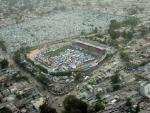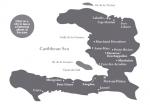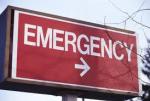USIP Webcast: Haitian Elections in the Time of Cholera (12/7/2010)
 Transitions in Haiti are seldom uneventful. An imperfect election on November 28th resulted in widespread frustration and frequent (but mostly nonviolent) protests. On Tuesday, December 7th, the United States Institute of Peace (USIP) will hold a panel discussion at 2:00 to discuss how the elections may influence Haiti’s recovery and how a newly elected government and the international community can best work together. Panelists include representatives from Partners in Health, the Organization of American States, and the Haitian Embassy in Washington DC. More information below.
Transitions in Haiti are seldom uneventful. An imperfect election on November 28th resulted in widespread frustration and frequent (but mostly nonviolent) protests. On Tuesday, December 7th, the United States Institute of Peace (USIP) will hold a panel discussion at 2:00 to discuss how the elections may influence Haiti’s recovery and how a newly elected government and the international community can best work together. Panelists include representatives from Partners in Health, the Organization of American States, and the Haitian Embassy in Washington DC. More information below.








